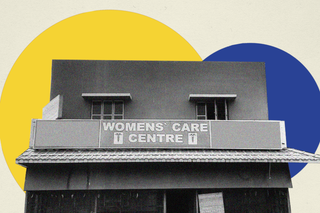
Govt Allows Abortion up to 24 Weeks in ‘Special’ Cases, But The Law Is Inadequate
As per the MTP Act amendments, a state-level board will decide whether people seeking abortion after 24 weeks of pregnancy meet the criteria.

Shortly after the Medical Termination of Pregnancy (Amendment) Act, 2021 came into force last month, the government announced rules stipulating the eligibility criteria for seeking an abortion up to 24 weeks of pregnancy.
This is an extension from the previous gestation limit as per the original 1971 Act, which allowed abortions only up to 20 weeks. Previously, one medical practitioner needed to sanction abortions up to 12 weeks and two for between 12 and 20 weeks. According to the new rules, only one doctor needs to approve up to 20 weeks, two between 20 and 24 weeks. A state Medical Board will decide in cases beyond 24 weeks.
Further, the criteria for seeking abortions between 20 and 24 weeks include the following: sexual assault, rape or incest; minors; widowhood and divorce during the pregnancy; women with physical disabilities; mentally ill women; fetal abnormalities which may lead to physical or mental abnormalities after birth, or emergencies.
The new amendments are essential but still suffer from significant shortcomings. First and most importantly, they still do not grant autonomy to people seeking abortions because it is not a “rights-based” framework. The requirement of sanction from medical practitioners makes the law more regulatory.
“The MTP Act of 1971 was framed from a public health, population control, the need-to-protect-doctors perspective and not from a women’s health and rights perspective,” said V.S. Chandrashekar, CEO of the Foundation for Reproductive Health Services.
In other words, abortion services have never been unconditional.
This is why, until now, several women have had to move courts to seek abortions, including minors and survivors of rape, despite being eligible for abortion under the MTP Act. A report by the Pratigya Campaign found that practitioners were advising people to seek court orders for abortions due to the 20-week gestation period limit. “Barring one or two courts, no one has questioned why such cases were being brought before them. As a result, this has become an accepted norm,” said Anubha Rastogi, lawyer and member of Pratigya Campaign Advisory Group.
Predicting that the new amendments won’t resolve this problem, experts called for the increase in gestation limit to apply to all pregnant persons and not just those who fit the special criteria.
Related on The Swaddle:
The Medical Board requirement is likely to complicate the process and make abortion access even more difficult for marginalized women from remote areas. The lack of a time limit on Board decisions also makes the process subject to excessive delays, further eroding pregnant people’s autonomy due to how abortion is conditional upon external opinions.
“Medical Boards are draconian and invasive as they strip away autonomy from the pregnant person. Our study indicates a severe lack of doctors across India, and this will make the setting up of Boards unfeasible,” Dipika Jain, from Jindal Global Law School, told The Hindu earlier this year.
The World Health Organization also endorses the idea that negotiating bureaucracy and authorities to access reproductive health services creates barriers for many women. It noted that “negotiating authorization procedures disproportionally burdens poor women, adolescents, those with little education and those subjected to, or at risk of, domestic conflict and violence, creating inequality in access.”
The history of the MTP has always been contentious, but what complicates it further is its entanglement with sex-selective abortion in discourse. Experts have noted that within nine weeks of pregnancy — when people seek tablet-based abortions the most — it is not possible to determine the sex of the fetus.
Still, “chemists claim they face additional scrutiny if they stock medical abortion drugs. They are informally told not to sell such pills, to keep copies of prescriptions and in some cases, keep track of the identity of the purchaser – a clear violation of the MTP Act, which assures women confidentiality,” writes Debanjana Choudhuri for The Diplomat. Despite significant progress in reproductive health technology over the last few decades, the new amendments don’t do much to dispel this notion or ease access to critical medical resources and services.
Moreover, the government has also not consulted key stakeholders before passing the Bill in parliament. As a result, the “special criteria” are ableist, heteronormative, and exclusionary of gender identities other than cis women. “The equating of “stakeholders” with elite groups of healthcare professionals, bureaucrats and politicians… and the exclusion of important civil society actors and marginalized groups whose lives are likely to be substantially affected by the law raises questions over the consultative process,” writes Dipika Jain, in The Indian Express.
“In passing the MTP Amendment Bill, the State continues to control women’s reproductive and sexual rights while wielding the argument of “progress.” The narrow understanding of women’s rights, which underpins the legislation, serves to explain much of the hetero-patriarchal regulatory orientation of the law,” she added.
Rohitha Naraharisetty is a Senior Associate Editor at The Swaddle. She writes about the intersection of gender, caste, social movements, and pop culture. She can be found on Instagram at @rohitha_97 or on Twitter at @romimacaronii.
Related


Do Multivitamins Really Make People Healthier?
